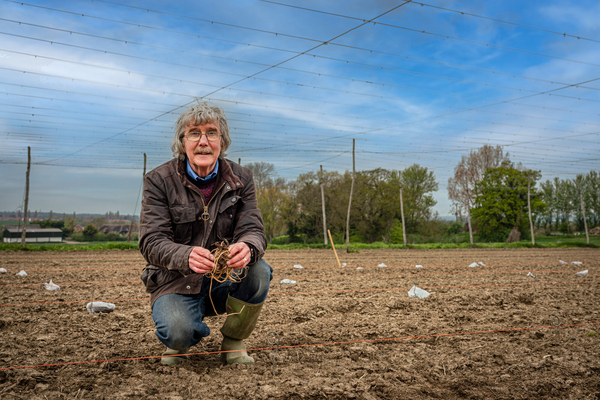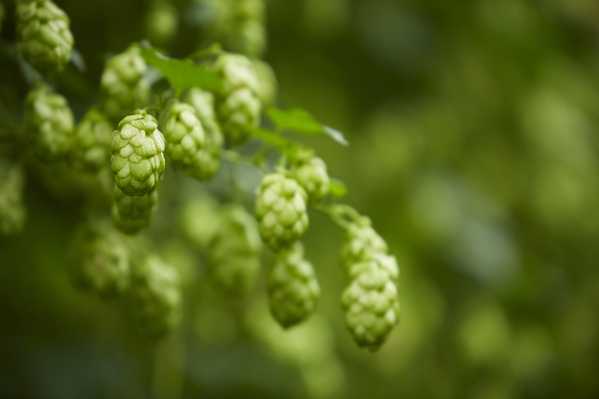New home for historic hops collection
Added: Monday, May 8th 2023

A world expert in hops, Dr Peter Darby, has come out of retirement to oversee the move of a collection of historic varieties to a new home in Kent. Dr Darby, who lives in Canterbury, says the new site will allow the National Hop Collection to grow from 250 to approximately 360 varieties.
The collection includes hops from other countries but it will spotlight British varieties. They include the oldest English hops, the Mathon from 1737 and the Golding, which dates from 1799 and is named after the farmer who first grew it.
The hop garden at Homestall Farm will also breed new hop varieties for brewers to use. The move has been made possible by financial backing from Britain’s oldest brewer, Shepherd Neame, founded in Faversham in 1698.
The new site is on land owned by hop grower Tony Redsell OBE, who is so admired in both the farming and brewing communities that he has a variety, the Redsell, named in his honour.
The creation of the hop collection is due to the dogged determination of Peter Darby. He started work on the collection at Wye College in Kent, a research and development establishment funded by Defra, the Department for the Environment, Food & Rural Affairs. When Defra withdrew funding for Wye College in 2007, Dr Darby created a commercial company Wye Hops to continue the work started at the college. The company is a subsidiary of the British Hop Association (BHA), which is run by hop farmers. His work was recognised in 2010 with the award of the title of the National Hop Collection.
Until he retired, Dr Darby was director of research and he was funded by, among others, the BHA, the Society of Independent Brewers, Brewing & Distilling International, and Kent County Agricultural Society. Defra has also resumed its funding.
As well as collecting historic varieties, Wye Hops has a breeding programme to develop new varieties for the brewing industry. Breeding involves collecting and preparing pollen, making crosses from existing hops and raising seedlings for planting.
New hop varieties bred at Wye include Boadicea, Endeavour and First Gold. First Gold was a major development that created international interest. It’s called a “hedgerow variety” as it grows to half the height of conventional hops – which climb to four to nine metres/15 to 30 feet -- and as a result is less prone to attack by pests and disease.

Peter Darby led a team of 10 to move the hop collection to its new site. The team includes the new director of research at Wye Hops, Klara Hadju, and farm manager Peter Laslett.
Peter Darby says: “Homestall Farm was a hop garden four years ago and it has lain empty since then. It has great soil for the collection to grow in.”
Once all the plants were at the new garden, they were lain out in lines, with careful notes taken of each variety and its position. They were then planted and covered in mulch to supress weeds. Hop stalks or bines climb up trellises known as strings that reach horizontal wires strung across the field. The aim is to give the plants maximum exposure to sunshine and rain.
The original garden for the collection was at Queen’s Court, Ospringe, near Faversham, with land donated by Shepherd Neame. As the number of hops in the collection grew, a move to a bigger site became necessary.
Peter Darby adds: “I am incredibly proud of everything we have achieved with the collection and when the opportunity arose to move to a bigger site where it could be enlarged and improved I wanted to get involved again. I felt it was a fitting way to finish my work.
“I am grateful to Shepherd Neame for such generous support. They pledged to fund the move and to continue to provide a significant annual contribution to its establishment and maintenance for at least the next five years.”
The collection has four samples of each hop variety. Peter Darby says it’s an important genetic bank, possessing the traits and characteristics used in hop breeding.
“I see each hop as like a key on a piano,” he adds. “The more notes that are available when you play, the more interesting sounds you can create.”
New hop varieties that are bred for commercial use are often trialled in pilot plants at breweries. Shepherd Neame, for example, has a pilot plant at Faversham.
Chief executive Jonathan Neame says: “We are privileged to have so many wonderful hops grown on our doorstep and we are committed to supporting the work of the National Hop Collection to preserve our hop heritage and create exciting new varieties.”








